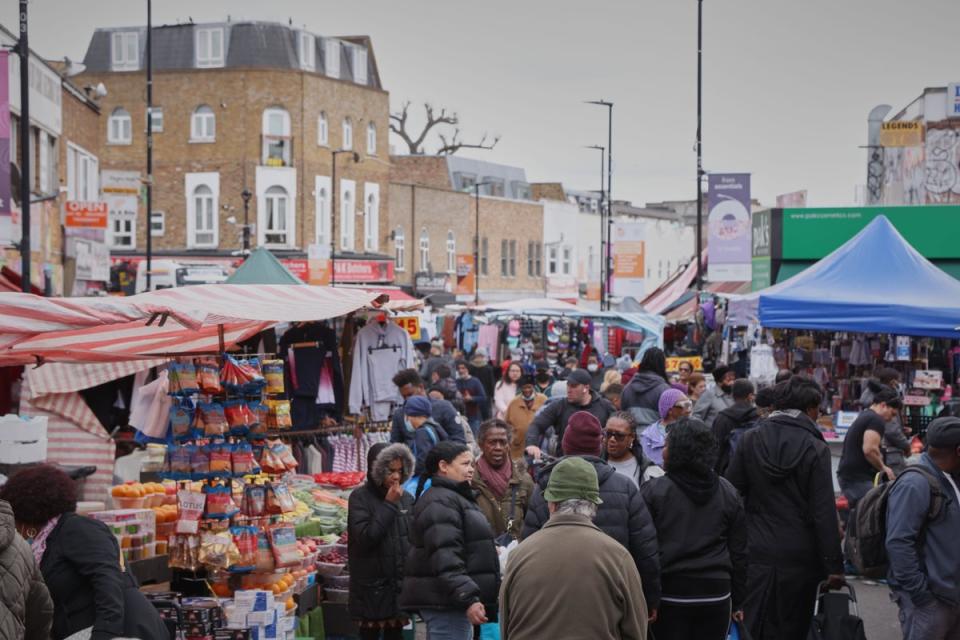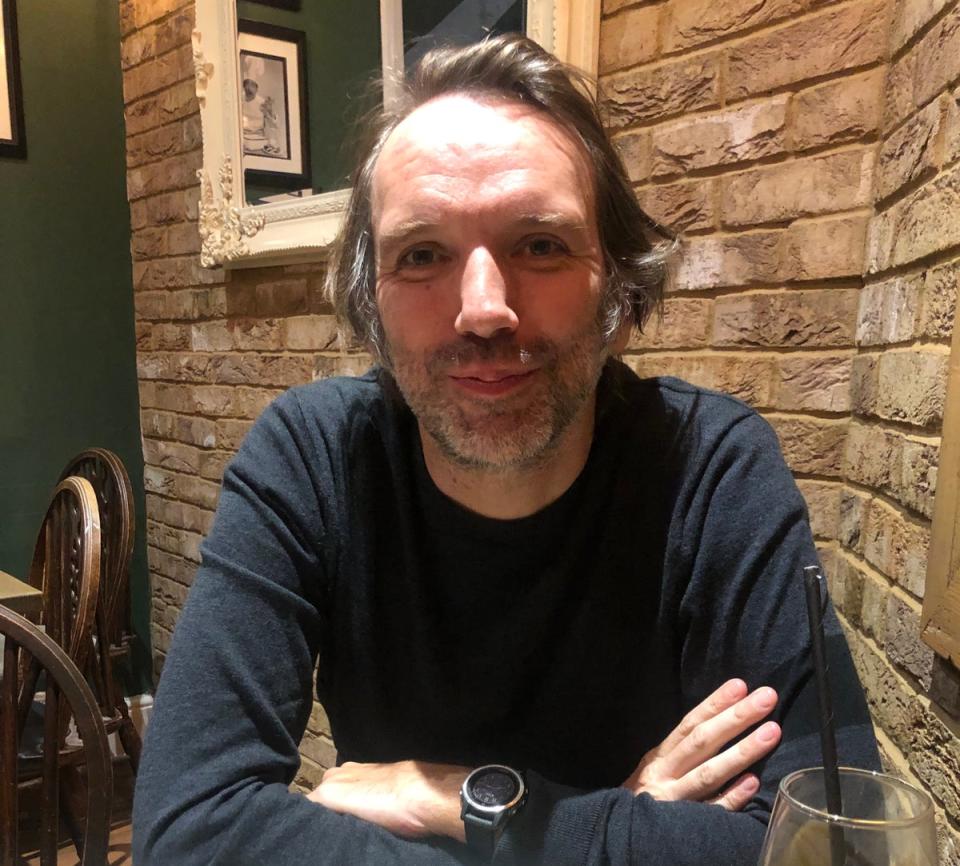I left Hackney for Hollywood — LA has nothing on London’s thrum, theatres and late-night thrill

It was Samuel Johnson who wrote that ‘When a man is tired of London, he is tired of life.’ Still, he penned those words in 1777, long before he ever could have found himself stuck between stations on the Northern Line, returned to his triple-locked bicycle to find somebody had stolen the saddle and brakes, or had to try to get home from the O2 after a concert. When I left London a decade ago, then, I had been quietly confident that the most famous regular at Ye Olde Cheshire Cheese had got it wrong. It was not life that I was tired of. It was definitely London.
It had all started so well. A decade before, I’d arrived from Glasgow on the southbound sleeper train to work as a doctor, and had quickly found myself a flat to share in Hackney. The pride I had felt at becoming a Londoner was only mildly tempered by the realisation that my new flatmates had all provided inarguable reasons why their names could not possibly appear on the lease. Our estate agent had reassured me that being the sole person named on the lease was a wonderful thing as it meant I could be ‘in charge’. And so I learned my first London lesson: never trust anybody who drives a Mini with the name of the company they work for emblazoned all over it.
My next London lesson also related to my flat: the large blank white space at the two o’clock position on the TFL map turned out to represent Hackney. I bought a bicycle and the more experienced Hackney-ite I purchased if from gave me the advice I still use today: take the lane if you need to, beware white van man, and above all remain eternally vigilant for the left turning lorries whose name is death.
Still, the occasional brush with mortality on the Old Street roundabout and the monthly chore of pursuing my flatmates for their rent were small prices to pay for the glory of living in Hackney. After all, here were pubs that held Friday night lock-ins, corner shops that sold vegetables I’d never even heard of, and parks as big as some small Scottish towns. Here too, were young people I was more than two degrees of separation away from.
I quickly discovered that another advantage of living in London was the number of people who came to visit. Friends, relatives, former colleagues: they all took their turn at bursting the inflatable mattress. As the months and years passed and my London knowledge accumulated, I developed a stock itinerary for these weekend visitors. Friday night was curry and drinks in Brick Lane, Saturday morning was Broadway Market for coffee, and if my guests wanted to go into Oxford Street on a Saturday afternoon - and they inexplicably always did - they were absolutely on their own. Sundays, of course, were for hungover traipsing around the markets of east London. My guests always enjoyed themselves, but I suspect I enjoyed their visits even more. Showing them around made me feel like a proper Londoner.
But then suddenly, and without warning, it happened: my tenth year in the city rolled around, and I found that I had fallen out of love with London. At the time I did not think to blame any of the numerous events in my personal life – a break-up, a job I no longer enjoyed – or even the fact that we’d all also recently been subjected to the sight of that other Johnson waving his Union Jacks as he dangled from the air over the Olympic Park. The magic seemed to have vanished, and I blamed London. When, six months later, I unexpectedly found myself with an opportunity to move to Los Angeles and work as a writer, I took it.

As soon as I landed at LAX, I felt the same feeling I’d had when I first arrived in London a decade previously: as if I had been given a gift so large it would take me years even to unwrap it. Even in those first weeks, I already understood that the two places were really not so unalike. The more time I spent in Los Angeles, the truer this seemed, and I often caught myself mentally tallying up the competing attractions of the two cities.
I found the wandering street coyotes of LA a marvel, but I’d seen American friends visiting London look at our urban foxes like they had glimpsed a dodo. The ubiquitous taco trucks of LA beat the ubiquitous fried chicken places of London, but Pret will triumph over Subway ever time. Malibu likely trumps the South Downs, but Soho soundly thrashes West Hollywood. On the cycling front, there are no white van men or left turning lorries in Los Angeles, but this is negated by the fact that even every ordinary driver is actively attempting to kill you. Americans would call this a wash, a term it took me years to understand meant ‘draw’.
Of course, no American would ever agree London and Los Angeles are equals, for they universally adore London. When I first arrived in LA, soccer was increasingly becoming the hipster’s choice of sport and they all supported Arsenal. “I’m not one of these people who just chose Arsenal because they are from London and therefore cool,” American acquaintances would line up to tell me, “I actually had a friend from there in college and he was a huge Arsenal fan, so I’ve followed them for years.” Given the incredible number of Arsenal supporters who seem to have undertaken further education in America, they must have one of the most learned fanbases in existence.
But it is not just the soccer-loving hipsters. The first big Hollywood star I had a work meeting with did not want to talk about the project we were there to discuss, but instead the late-night pubs of East London. Was The Dolphin still there? How was that place even allowed? And what, he wanted to know, was the deal with Ye Olde Axe, Hackney Road’s legendary rockabilly bar that turned into a strip club on the stroke of midnight? These questions then segued into a broader one: why the hell I would ever have forsaken London for Los Angeles? Nobody had ever asked me that before, and it gave me such sudden pause that I could only mumble something about the weather.
As the years passed, I honed my Los Angeles knowledge - which freeway exits to take, which to avoid, where they keep the good margaritas - and took pride in my status as an Angeleno. Once again, I developed an itinerary for my visitors: the Griffith Park observatory, the Santa Monica Pier, Malibu’s Point Dume. And once again, showing visitors around made me feel like I belonged, although this time it was as an Angeleno.
But then, it happened again. After ten years I woke up one morning to the feeling that Los Angeles was no longer the place I once fell in love with. The summers are ever hotter, the politics are ever worse, and the homelessness simply heartbreaking. And yet, as this is now the second time that it has happened to me, deep down I am finally smart enough to understand that it is not the city that has changed, not really. It is me. And with this another belated realization: when I left London it was not that I was tired of it - how could I have ever been?

I know this, too, because each time I come back to London now I get the same feeling of being 25 and stepping off the train into the King’s Cross morning: the same excitement, the same sense of gift-unwrapping. Now, though, it is couched in a little sadness too, for each time I return to London I find myself ever more of a tourist, my hard-won London knowledge reduced to the level of a holidaying parent trying to speak secondary school French: half-remembered, awkward, mostly out of date. Restaurants I loved are no longer there, pubs have been turned in to flats, and Oxford Street seems to have become one giant sweetshop. Hackney now has an embarrassment of stations, and for all I know there may even now be more than one working cash machine in the borough too.
During the pandemic, I was unable to return to London for two and a half years, and I found myself missing it viscerally. I missed my friends there, of course, and cycling along the canal and going to the theatre, but I also missed the elemental thrum of the city, the buzz and the excitement of so many Londoners in close proximity, something that Los Angeles with its endless sprawl simply does not have. The novel I spent my pandemic writing had always been set in London, but the role the city played in it grew exponentially larger in proportion to how much I missed it. Of course, I had to set the book in the past to account for my out-dated knowledge, but even at that I hope any of my fellow Londoners that might read it will forgive me any inaccuracies.
Dr Johnson was, I think, both right and wrong. When I look back on it now, I don’t believe I was tired of either London or of life, but simply ready for a rest or a change. Perhaps it seems like sacrilege to challenge the great diarist and dictionary compiler, but he did also write that “Whoever thinks of going to bed before twelve o’clock is a scoundrel,” so he may not have been entirely infallible - even if, like everyone else, he might have enjoyed a good night out at The Dolphin.
Sometimes People Die by Simon Stephenson is out now

 Yahoo Finance
Yahoo Finance 